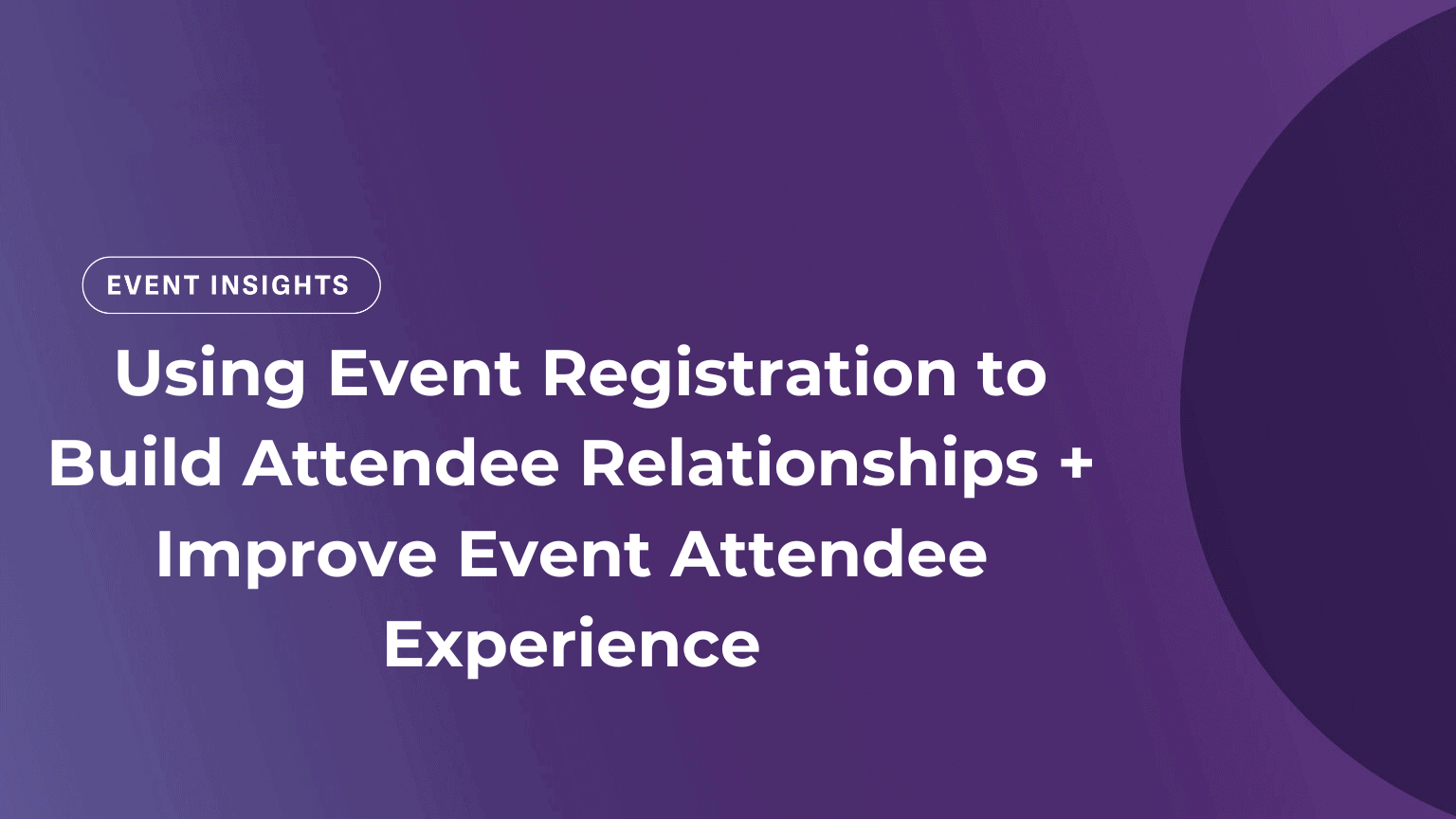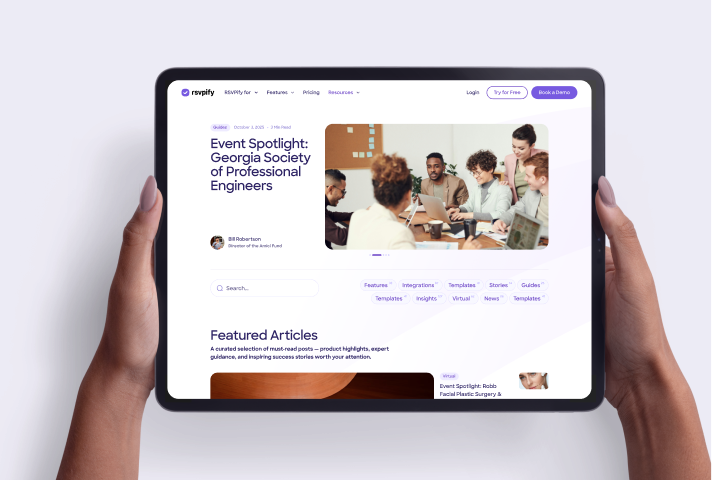Back to all posts
May 12, 2025

Event registration has evolved far beyond a simple RSVP form. As Ari Driessen, co-founder and CEO of RSVPify, explained in a recent interview with pc/nametag, today’s event planners are rethinking how registration can play a central role in delivering a personalized, relationship-driven attendee experience.
In today’s marketing landscape, events have emerged as a primary channel for businesses to engage with their audience. A series of industry trend reports and surveys of event professionals have highlighted the rising importance of event marketing as a key channel for building brand trust and relationship building, and there's no sign that the trend will abate anytime soon.
Elements like lead capture, sentiment analysis, and post-event promotional opportunities offer unique benefits over other marketing channels. For instance, events provide real-time feedback and direct interactions, enabling businesses to gather valuable insights and foster deeper connections with their audience. A study by Demand Gen Report highlights that 80% of marketers agree their company would benefit from event-led growth, emphasizing the importance of events in driving meaningful engagement and revenue.
The registration process is no longer just about data collection. It’s the beginning of the event attendee experience and a key opportunity to make a strong first impression. In a world where personalization is king, smart registration design can foster deeper engagement right from the start.
“ROR [Return on Relationships] is even harder to track than ROI. But it’s essential.” – Ari Driessen
One major shift Ari highlighted is the rise of customizable agendas. Attendees want to create their own event experiences by choosing sessions, networking opportunities, and even entertainment that align with their interests.
“We’re seeing a lot of focus on a kind of ‘pick your own adventure’ style… Give the audience a menu and let them choose what they want to attend.”
This flexibility not only enhances the attendee experience but also gives organizers valuable data on preferences and engagement.
Every field on your registration form is a chance to learn something useful. From dietary restrictions and accessibility needs to past attendance and interests, each detail helps organizers deliver a more tailored experience.
Key Data Points to Collect and Leverage:
Job Title and Company: Understand the professional background of attendees to tailor content and networking opportunities.
Session Preferences: Gauge interest levels in various topics to optimize session planning and resource allocation.
Dietary Restrictions: Ensure inclusive catering options, enhancing the overall attendee experience.
Accessibility Needs: Provide necessary accommodations, demonstrating commitment to inclusivity.
Communication Preferences: Determine the preferred channels and frequency for updates, leading to more effective engagement.
Post-Event Feedback: Collect insights on attendee satisfaction to inform future event improvements.
By systematically collecting and analyzing this data, organizers can personalize communications, improve event logistics, and build stronger relationships with attendees, ultimately enhancing the overall success of their events.
About the Author
Adam Hausman co-founded RSVPify in 2013 and has been passionate about event tech and ticketing software ever since. Also founder of Greenlight Growth Marketing, he holds degrees from Indiana University (BA English/Psychology 2008) and the University of Illinois-Chicago (M.Ed. Secondary Education 2012). He lives in Maine with his wife, 2 kids, and 2 annoying cats.
Get the latest product updates, event planning tips, and industry insights — straight to your inbox.
You can unsubscribe at any time. Your email will only be used to send RSVPify updates and will never be shared.
